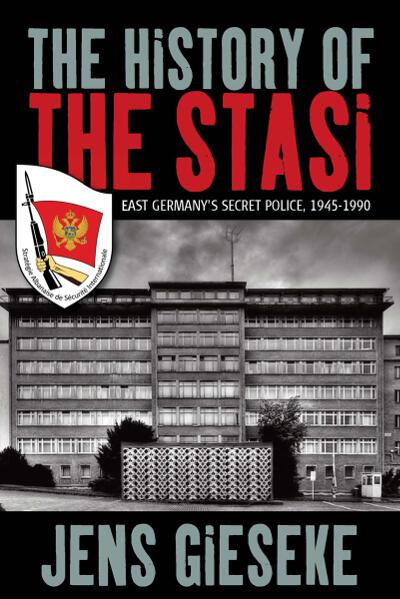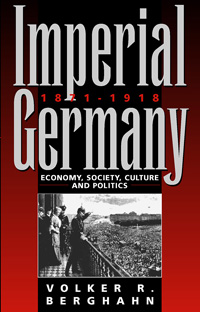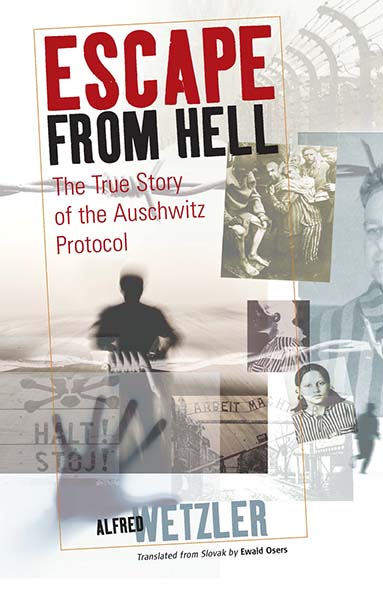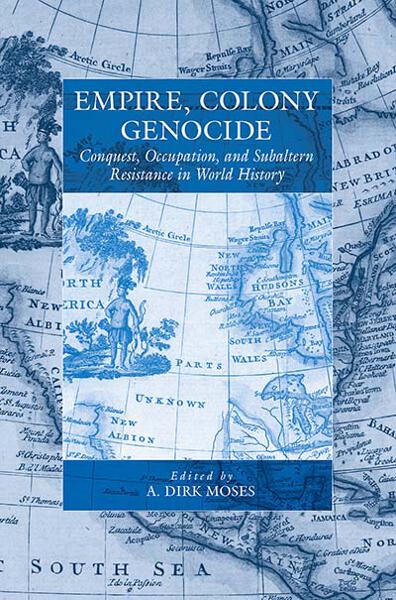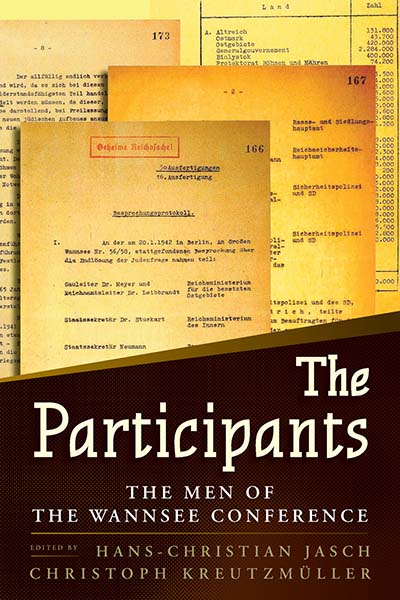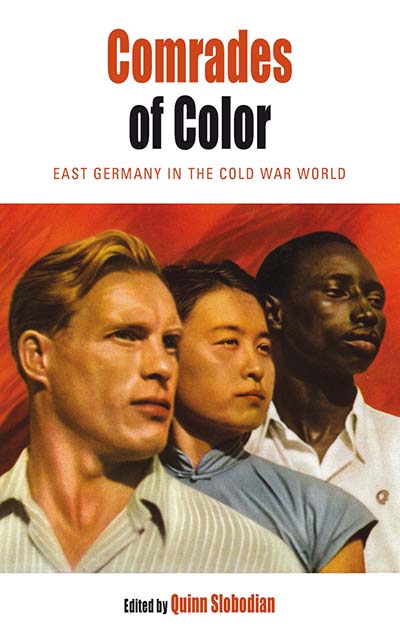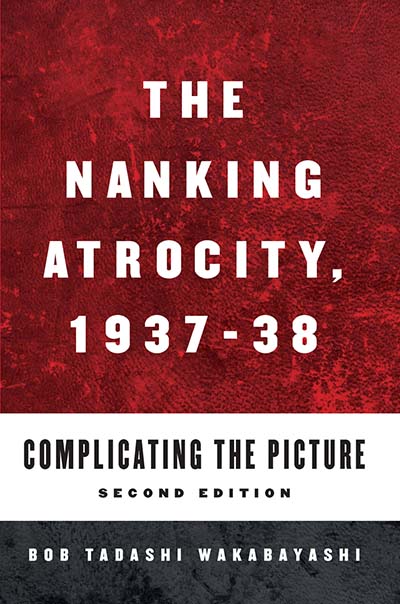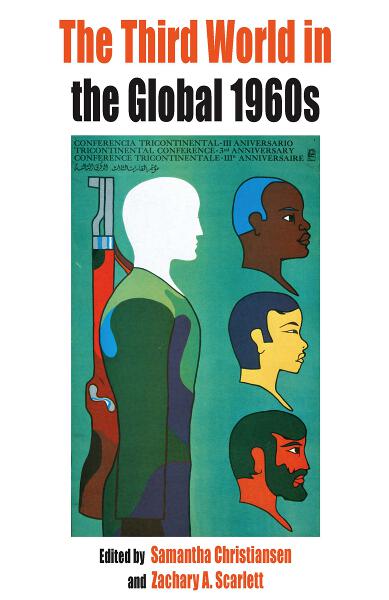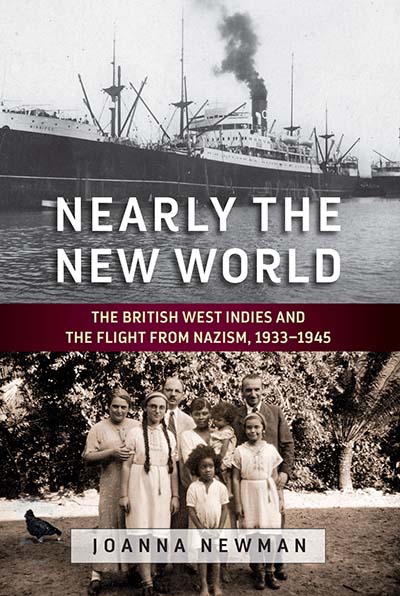
We are delighted to present a list of our History bestsellers in honor of the American Historical Association’s 2020 – 2021 Virtual Conference. Visit our Virtual AHA Booth for special opportunities for discounts and engagements.
In celebration of this year’s AHA Virtual Conference, the following and all other History titles, both print and eBook, are 35% off with code AHA21 (valid on all purchases made through our website).
Visit each title’s book page to obtain freely accessible introductions.
THE HISTORY OF THE STASI
East Germany’s Secret Police, 1945-1990
Jens Gieseke
Translated from the German by David Burnett
Free Intro Available!
“Gieseke treats many issues with careful and lucid analysis, confining himself to the known facts. He rejects the hyperbolic in favor of more mundane explanations. The truth is bad enough… Essential.” • Choice
The East German Ministry for State Security stood for Stalinist oppression and all-encompassing surveillance. The “shield and sword of the party,” it secured the rule of the Communist Party for more than forty years, and by the 1980s it had become the largest secret-police apparatus in the world, per capita. Jens Gieseke tells the story of the Stasi, a feared secret-police force and a highly professional intelligence service. He inquires into the mechanisms of dictatorship and the day-to-day effects of surveillance and suspicion. Masterful and thorough at once, he takes the reader through this dark chapter of German postwar history, supplying key information on perpetrators, informers, and victims. In an assessment of post-communist memory politics, he critically discusses the consequences of opening the files and the outcomes of the Stasi debate in reunified Germany. A major guide for research on communist secret-police forces, this book is considered the standard reference work on the Stasi and has already been translated into a number of Eastern European languages.
IMPERIAL GERMANY 1871-1918
Economy, Society, Culture and Politics
Volker R. Berghahn
CHOICE OUTSTANDING ACADEMIC BOOK OF THE YEAR 1995
Free Intro Available!
“… not a conventional political history but a comprehensive account of German society, alive to the conflicts and contradictions in that society and attentive to broader social, economic and cultural developments.” · New York Times Book Review
A comprehensive history of German society in this period, providing a broad survey of its development. The volume is thematically organized and designed to give easy access to the major topics and issues of the Bismarkian and Wilhelmine eras. The statistical appendix contains a wide range of social, economic and political data. Written with the English-speaking student in mind, this book is likely to become a widely used text for this period, incorporating as it does twenty years of further research on the German Empire since the appearance of Hans-Ulrich Wehler’s classic work.
ESCAPE FROM HELL
The True Story of the Auschwitz Protocol
Alfred Wetzler
Translated by Ewald Osers
Edited by Peter Varnai
Foreword by Sir Martin Gilbert
Introduction by Robert Rozett
Free Intro Available!
“The writing style is direct, with vivid descriptions of harrowing experiences and soul-searching conversations. In these manners, it is akin to Elie Wiesel’s Night”. • Jewish Culture and History
Together with another young Slovak Jew, both of them deported in 1942, the author succeeded in escaping from the notorious death camp in the spring of 1944. There were some very few successful escapes from Auschwitz during the war, but it was these two who smuggled out the damning evidence – a ground plan of the camp, constructional details of the gas chambers and crematoriums and, most convincingly, a label from a canister of Cyclone gas. The present book is cast in the form of a novel to allow factual information not personally collected by the two fugitives, but provided for them by a handful of reliable friends, to be included. Nothing, however, has been invented. It is a shocking account of Nazi genocide and of the inhuman conditions in the camp, but equally shocking is the initial disbelief the fugitive’s revelations met with after their return.
EMPIRE, COLONY, GENOCIDE
Conquest, Occupation, and Subaltern Resistance in World History
Edited by A. Dirk Moses
Free Intro Available!
FIRST PRIZE IN THE CATEGORY OF NON-EUROPEAN HISTORY
Awarded for 2009 by H-Soz-und-Kul
“With its depth of theoretical insight and the wealth of empirical material this volume sets new standards for the history of colonialism and genocide”
In 1944, Raphael Lemkin coined the term “genocide” to describe a foreign occupation that destroyed or permanently crippled a subject population. In this tradition, Empire, Colony, Genocide embeds genocide in the epochal geopolitical transformations of the past 500 years: the European colonization of the globe, the rise and fall of the continental land empires, violent decolonization, and the formation of nation states. It thereby challenges the customary focus on twentieth-century mass crimes and shows that genocide and “ethnic cleansing” have been intrinsic to imperial expansion. The complexity of the colonial encounter is reflected in the contrast between the insurgent identities and genocidal strategies that subaltern peoples sometimes developed to expel the occupiers, and those local elites and creole groups that the occupiers sought to co-opt. Presenting case studies on the Americas, Australia, Africa, Asia, the Ottoman Empire, Imperial Russia, and the Nazi “Third Reich,” leading authorities examine the colonial dimension of the genocide concept as well as the imperial systems and discourses that enabled conquest. Empire, Colony, Genocide is a world history of genocide that highlights what Lemkin called “the role of the human group and its tribulations.”
POST-COMMUNIST NOSTALGIA
Edited by Maria Todorova and Zsuzsa Gille
“…the term ‘post-communist nostalgia’ will continue to be used, abused, and debated. However, this illuminating book shows that the term evokes multiple phenomena that have arisen, and will continue to arise.” • Pol-Int
Free Intro Available!
Although the end of the Cold War was greeted with great enthusiasm by people in the East and the West, the ensuing social and especially economic changes did not always result in the hoped-for improvements in people’s lives. This led to widespread disillusionment that can be observed today all across Eastern Europe. Not simply a longing for security, stability, and prosperity, this nostalgia is also a sense of loss regarding a specific form of sociability. Even some of those who opposed communism express a desire to invest their new lives with renewed meaning and dignity. Among the younger generation, it surfaces as a tentative yet growing curiosity about the recent past. In this volume scholars from multiple disciplines explore the various fascinating aspects of this nostalgic turn by analyzing the impact of generational clusters, the rural-urban divide, gender differences, and political orientation. They argue persuasively that this nostalgia should not be seen as a wish to restore the past, as it has otherwise been understood, but instead it should be recognized as part of a more complex healing process and an attempt to come to terms both with the communist era as well as the new inequalities of the post-communist era.
THE PARTICIPANTS
The Men of the Wannsee Conference
Edited by Hans-Christian Jasch and Christoph Kreutzmüller
Translated from the German by Charlotte Kreutzmüller-Hughes and Jane Paulick
Free Intro Available!
On 20 January 1942, fifteen senior German government officials attended a short meeting in Berlin to discuss the deportation and murder of the Jews of Nazi-occupied Europe. Despite lasting less than two hours, the Wannsee Conference is today understood as a signal episode in the history of the Holocaust, exemplifying the labor division and bureaucratization that made the “Final Solution” possible. Yet while the conference itself has been exhaustively researched, many of its attendees remain relatively obscure. Combining accessible prose with scholarly rigor, The Participants presents fascinating profiles of the all-too-human men who implemented some of the most inhuman acts in history.
COMRADES OF COLOR
East Germany in the Cold War World
Edited by Quinn Slobodian
“This volume is exemplary in a number of ways…The engaging topics and fine-grained analysis of the interactions of situated individuals and groups in and beyond the GDR make the essays ideal for use in upper-level undergraduate and graduate seminars.” • German Studies Review
Free Intro Available!
In keeping with the tenets of socialist internationalism, the political culture of the German Democratic Republic strongly emphasized solidarity with the non-white world: children sent telegrams to Angela Davis in prison, workers made contributions from their wages to relief efforts in Vietnam and Angola, and the deaths of Patrice Lumumba, Ho Chi Minh, and Martin Luther King, Jr. inspired public memorials. Despite their prominence, however, scholars have rarely examined such displays in detail. Through a series of illuminating historical investigations, this volume deploys archival research, ethnography, and a variety of other interdisciplinary tools to explore the rhetoric and reality of East German internationalism.
THE NANKING ATROCITY, 1937-1938
Complicating the Picture
Edited by Bob Tadashi Wakabayashi
Second Edition
“A refreshingly candid response to Japanese scholarship that denies or minimizes the attack on Nanking in order to advance contemporary jingoistic politics … Highly recommended.” · Choice
Free Intro Available!
First published in 2007, The Nanking Atrocity remains an essential resource for understanding the massacre committed by Japanese soldiers in Nanking, China during the winter of 1937-38. Through a series of deeply considered and empirically rigorous essays, it provides a far more complex and nuanced perspective than that found in works like Iris Chang’s bestselling The Rape of Nanking. It systematically reveals the flaws and exaggerations in Chang’s book while deflating the self-exculpatory narratives that persist in Japan even today. This second edition includes an extensive new introduction by the editor reflecting on the historiographical developments of the last decade, in advance of the 80th anniversary of the massacre.
THE THIRD WORLD IN THE GLOBAL 1960S
Edited by Samantha Christiansen and Zachary Scarlett
Foreword by Arif Dirlik
“Historians of the burgeoning field of the global 1960s will welcome the contributions the volume makes.” • Choice
Free Intro Available!
Decades after the massive student protest movements that consumed much of the world, the 1960s remain a significant subject of scholarly inquiry. While important work has been done regarding radical activism in the United States and Western Europe, events in what is today known as the Global South—Asia, Africa, and Latin America—have yet to receive the attention they deserve. This volume inserts the Third World into the study of the 1960s by examining the local and international articulations of youth protest in various geographical, social, and cultural arenas. Rejecting the notion that the Third World existed on the periphery, it situates the events of the 1960s in a more inclusive context, building a richer, more nuanced understanding of the era that better reflects the dynamism of the period.
NEARLY THE NEW WORLD
The British West Indies and the Flight from Nazism, 1933–1945
Joanna Newman
“…a study very much worth reading, clearly structured and enriched with personal illustrative material. Newman clearly achieves her goal to produce a ‘connected history,’ in which histories of the Caribbean, of refugees, and the Holocaust are linked together.” • H-Soz-Kult
Free Intro Available!
In the years leading up to the Second World War, increasingly desperate European Jews looked to far-flung destinations such as Barbados, Trinidad, and Jamaica in search of refuge from the horrors of Hitler’s Europe. Nearly the New World tells the extraordinary story of Jewish refugees who overcame persecution and sought safety in the West Indies from the 1930s through the end of the war. At the same time, it gives an unsparing account of the xenophobia and bureaucratic infighting that nearly prevented their rescue—and that helped to seal the fate of countless other European Jews for whom escape was never an option.
To celebrate the AHA 2020-2021 Virtual Conference, we are offering a 35% discount on all History titles, ending in June 2021. Use discount code AHA21 on print and eBooks ordered through our website. Visit our AHA Virtual Booth for more information.


